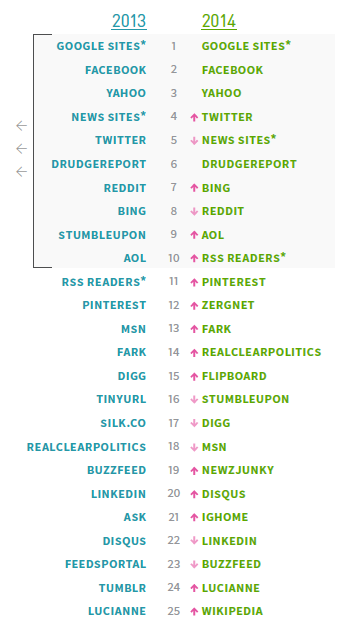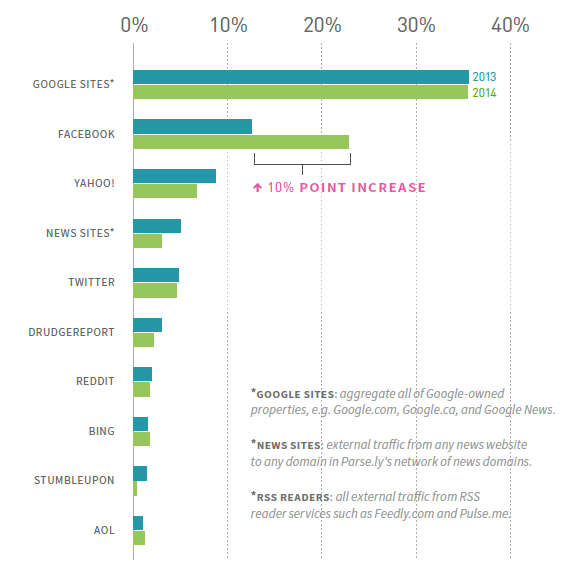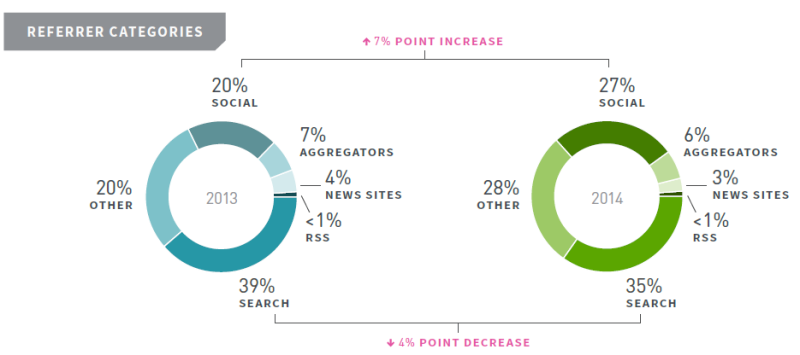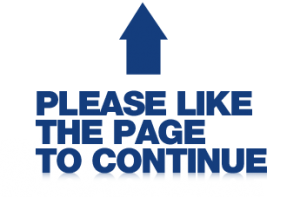According to Parse.ly’s quarterly Authority Report, Facebook is still the best social platform for publishers looking for exposure. The site saw a 10 percent increase in referral traffic to publisher sites this August, compared to the data from a year earlier.
Parse.ly analyzed data from over 10 billion page views and more than 100,000 posts across its network to track online reading trends in an effort to determine peak reading times and referral traffic patterns. The report found that reading times peaked at 12:18 p.m., at which point desktop page views outperform mobile.

While Google was still the lead referral traffic, Facebook continues to hold the second spot making it the top social network to send traffic to publisher websites.

Surprisingly, the report shows very little change in traffic patterns over the past year, with Facebook being the only site in the top 10 to experience a significant increase in the amount of traffic sent to publisher sites.

Parse.ly’s report also noted that traffic from social sites had risen seven percent over the past year, while traffic from search sites fell by four percent. You can get more insights from the downloadable report here.

 Tomorrow marks a rather significant change in Facebook policy as they close the so-called “like gate.” As
Tomorrow marks a rather significant change in Facebook policy as they close the so-called “like gate.” As 

